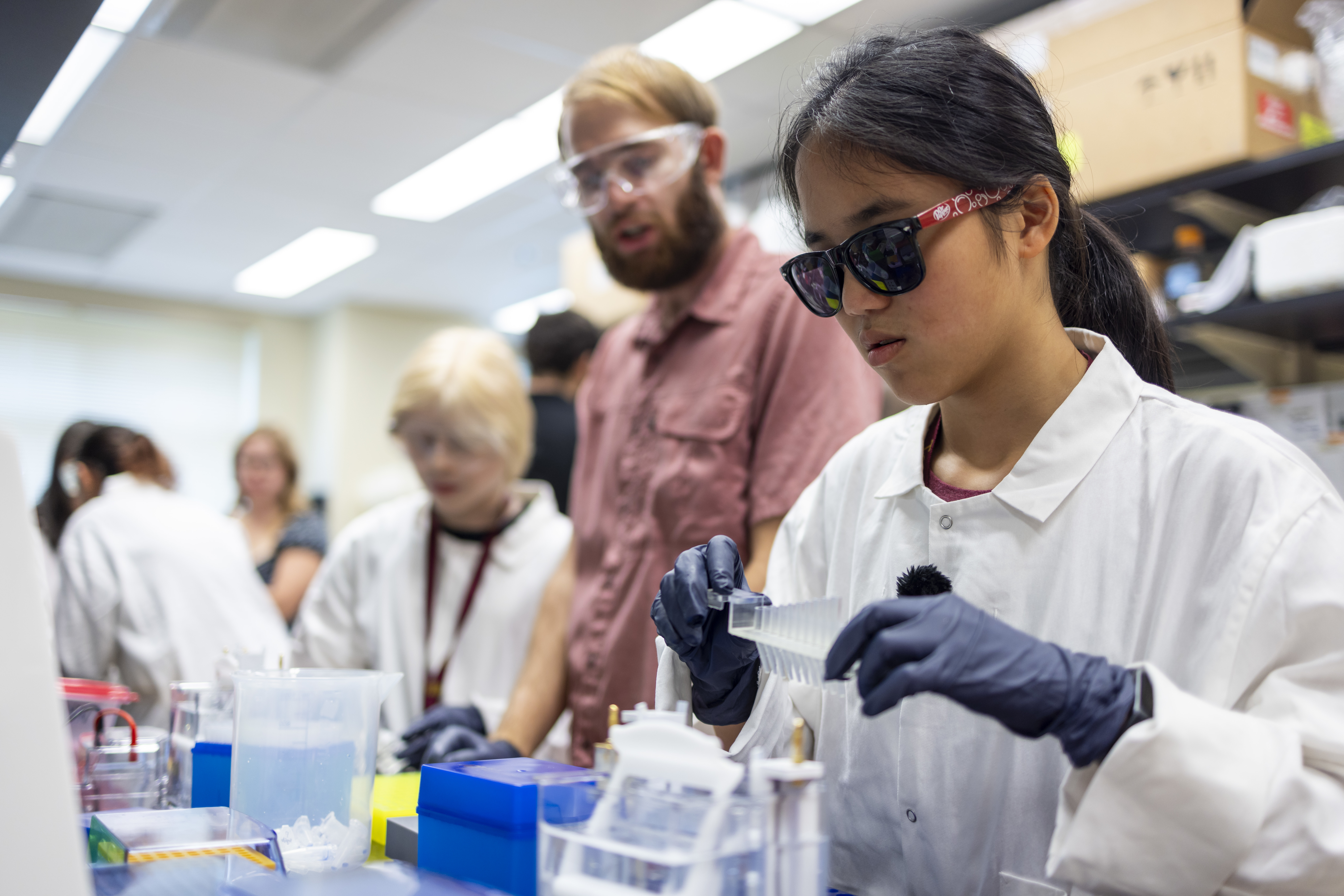Baylor Professor Makes Science Accessible for Blind and Visually Impaired Students, Highlighted on NBC News

High school-aged visitors to Bryan Shaw’s Baylor chemistry lab this Fall received hands-on experiences in high-tech robotics, precise measurements and a variety of tasks they might someday experience in college. Their participation in these activities was truly unique—the students, all from the Texas School for the Blind and Visually Impaired (TSBVI), found a working lab outfitted with them in mind. As Shaw continues his efforts to make science more inclusive to those with disabilities, they hope it will become more common.
“We could not make a model that would ever come close to the actual experience that they’re able to gather here in this program, with the mentors from Baylor,” says Neely Kulhanek, a teaching assistant at TSBVI. “I think as a culture, our attitude toward people with disabilities has grown so much, and Baylor is ahead of the game — a forefront type of program to be an example for others.”
The groundbreaking nature of the approach—making science accessible to students with blindness—drew NBC News to see for themselves, and they covered the work in a recent NBC News Now story.
“The lab is the final frontier of learning,” Shaw told NBC. “So, if you don't make the lab accessible, you're not really making science accessible.”
One example is the Shaw Lab’s zampona, an invention that allows students to perfectly run tests without sight. Others include robotics, talking scales and lithophanes that allow for tactile learning.
Emma Olguin, a TSBVI student, struggled to begin the experiment without these tools, but found it easy with them.
“It felt very surreal. It was amazing how simple it was, especially after doing it without the zambona,” she said. “(This experience) has really helped me a bunch and helped me to maybe come closer to deciding what I want to do in my future.”
For Shaw, Baylor Professor of Chemistry, creating experiences like this in both the short and long term is important. His son, Noah, was diagnosed as an infant with retinoblastoma, an aggressive pediatric eye cancer, and is now thriving as a teenager despite losing an eye.
“When I think about my son and talk to other parents of children with disabilities, what they’ll be doing in their 30s and 40s depends on what we’re doing for them now,” Shaw says. “And most scientists are just too busy to really even care. At Baylor, it’s not that way, and that’s nice. There’s an ethos here.”
Shaw’s efforts have earned millions in funding and been published in the prestigious journal Science, and been covered in a variety of media in addition to the NBC News story. They also have drawn top professors who have built highly regarded academic careers although blind or visually impaired.
“I’ve been blind since I was a kid, and all I wanted to do was be a scientist,” Mona Minkara, Ph.D., a bioengineering professor at Northeastern University, said. Minkara has partnered in research with Shaw and came to Waco to work with TSBVI students. “And all I heard was that I couldn’t be a scientist. So, to get to the point where we’re training the next generation to have the option to choose science? I can’t even describe to you in words how that hits me.”